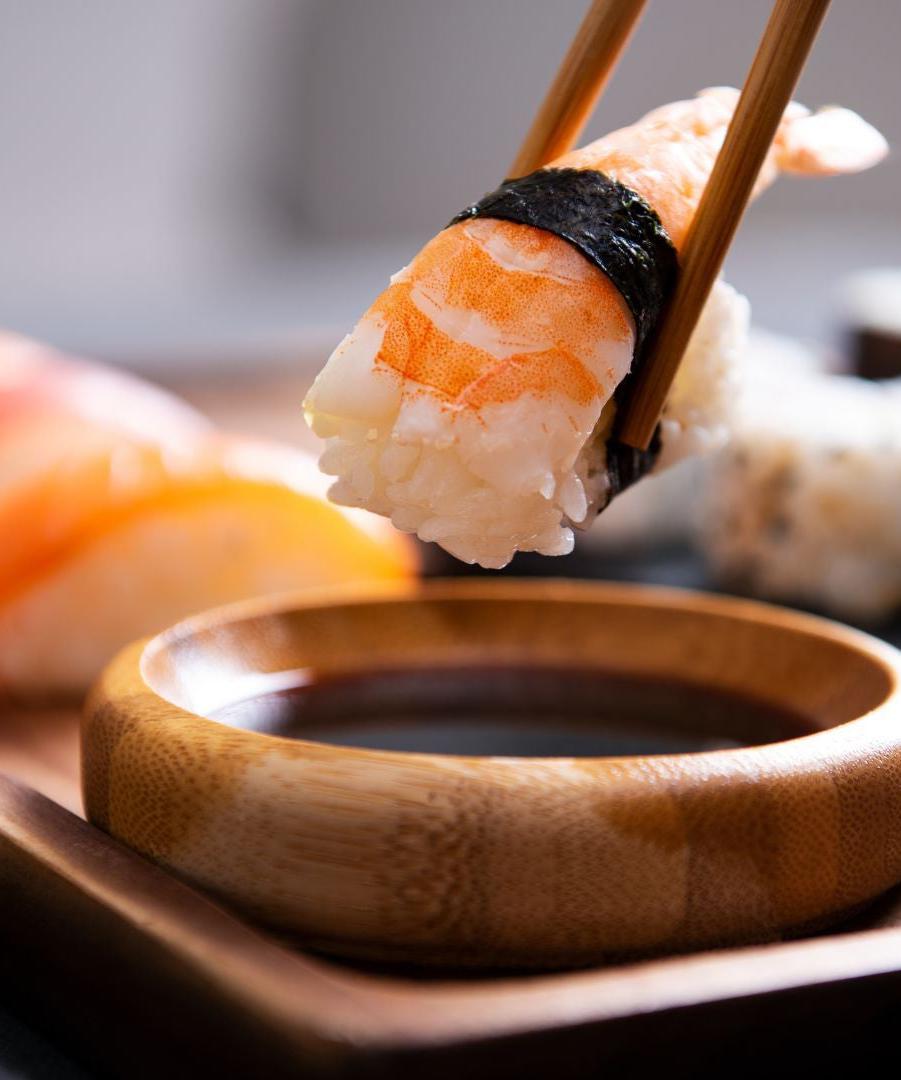Understanding What Makes a Food Halal or Haram
When it comes to dietary restrictions in Islam, the terms “halal” and “haram” are paramount. For a more detailed understanding of what makes food halal or haram in Islam, Britannica offers an extensive overview, explaining how these concepts are defined in Islamic law . Halal refers to what is permissible under Islamic law, as defined in the Quran. On the other hand, haram refers to what is forbidden. The distinction between halal and haram can be quite clear, but there are some grey areas that require careful consideration. One such area is the status of soy sauce. Is soy sauce halal or haram? This question has been a topic of debate among Muslims and Islamic scholars alike.
The main factors that determine whether a food is halal or haram include the source of the food, the way it is processed, and its ingredients. For instance, pork and alcohol are considered haram in Islam. However, when it comes to processed foods like soy sauce, the situation can get a bit complex. This is because soy sauce is a fermented product, and fermentation often involves the production of small amounts of alcohol.
Soy Sauce Ingredients & Manufacturing Process
Now, let’s take a closer look at what goes into soy sauce and how it’s made. The American Halal Foundation provides insights into the various sources of foods and drinks in Islamic law, which can help understand the halal or haram status of soy sauce ingredients . On the surface, soy sauce is just a simple blend of natural ingredients of soybeans, wheat, salt, and water, which goes through fermentation. The magic part is the fermentation, where these ingredients transform into the salty, savory condiment we love. This fermentation process involves the use of a specific type of mold or yeast, which is where we get into a bit of a pickle: fermentation leads to the production of alcohol as a byproduct.
Yep, you read that right, alcohol. The very thing that has us questioning, “Is soy sauce halal?”
The Role of Alcohol in Soy Sauce Production
With the fermentation process comes the part that stirs up all the confusion: the formation of alcohol. In many foods, not just Japanese soy sauce, alcohol can form naturally through fermentation. You’ll find it in items like bread and vinegar, two essentials in many diets worldwide, including in Muslim communities.
When it comes to soy sauce, a bit of alcohol acts as a preservative. It extends the shelf life of the soy sauce, letting it hold onto its quality for a longer period. But just how much alcohol is in soy sauce? Typically, it’s pretty minuscule, often less than 2%, and these tiny quantities can’t get you intoxicated. However, even the tiniest bit of alcohol can raise questions about the halal status of foods in some Muslim minds.
Varieties of Soy Sauce: Differences in Ingredients and Process
Not all soy sauces are created equal. Differences in ingredients and fermentation processes between brands and type of soy sauce can considerably affect the alcohol content—and consequently, the halal status—of the final product.
For instance, traditional soy sauce, like Kikkoman soy sauce, undergoes a natural process of fermentation, often leading to the formation of a small amount of alcohol. In contrast, non-brewed or chemically synthesized soy sauces dodge the fermentation process, resulting in a product with no alcohol but often lacking the depth of flavor of its brewed counterparts.
So, is there alcohol in soy sauce across the board? No, it depends on the type and brand of the soy sauce. For example, most Japanese Shoyu contains mirin, but for Chinese light soy sauce or dark soy sauce, no alcohol contains. This variety is beneficial as it offers choices to Muslims who wish to strictly adhere to dietary guidelines provided by Islam.
Interpreting Alcohol by Volume in Soy Sauce from a Halal Perspective
Not every analysis concludes that the presence of alcohol in food, including in soy sauce, is haram. The American Halal Foundation discusses the impact of alcohol content in foods and its acceptability in halal diets, which is relevant in the context of soy sauce . Islamic scholars interpret the Quran and Hadiths (sayings and actions of the Prophet Muhammad) differently, which can lead to different conclusions on this. Some scholars argue that as long as the alcohol is naturally occurring and not enough to cause intoxication, it’s still within the realm of what’s halal. Others take a more conservative position, saying any alcohol presence makes the food haram, period. So, depending on who you ask, the answer to, “Is soy sauce halal?” could be different.
Why Some Brands of Soy Sauce May Be Haram?
While we’ve largely focused on alcohol, it’s not the only thing that could make a soy sauce haram. Getting to the nitty-gritty details of why some soy sauces may be considered haram starts with scrutinizing the ingredients list. Some brands might include additives or flavor enhancers derived from sources that are not halal.
For instance, some soy sauce flavorings may contain haram ingredients like animal-based products. For example, some flavored soy sauces may contain broth like fish sauce or extracts from animals that weren’t slaughtered according to Islamic custom. These would certainly be considered haram. When asking, “Does soy sauce have alcohol?” it’s crucial not to forget about other additives or common condiment that might also conflict with a halal diet.
Moreover, if a brand specifically includes alcohol as an added ingredient (rather than as a byproduct of the fermentation process), then that soy sauce would likely fall into the haram category. In these instances, the answer to “does soy sauce have alcohol?” would have significant impacts on its halal status.
Fatwa Views on Soy Sauce
Many prominent scholars have weighed in on the permissibility of consuming soy sauce. For a deeper understanding of the variety of fatwas on soy sauce, Britannica explains the methods early Islamic scholars used to deduce the permissibility of foods . Notable figures such as Mustafa Umar and Mufti Faraz Adam have provided their own fatwas, or legal rulings, which play a significant role in shaping public opinion within the Muslim community.
Their conclusions, based on their understanding and interpretation of Islamic law, can sometimes differ. Some declare that since the minute levels of alcohol in soy sauce are naturally occurring and don’t reach an intoxicating level, it is halal. Others, however, suggest that out of caution, it’s better for Muslims to avoid consuming any foodstuff that contains even trace amounts of alcohol.
The Case Study of Pearl River Bridge: Alcohol Content in Natural Brewing Soy Sauce
Taking a look at popular brands can help illustrate these principles. Pearl River Bridge is a well-known China brand that produces regular soy sauce with natural fermentation. Nevertheless, this doesn’t mean that the soy sauce they produce is haram, as the alcohol is a byproduct of the fermentation process and not added for its effects. This situation highlights the complexity and nuances that can occur when applying religious dietary laws to everyday food items.
Halal Alternatives to Traditional Soy Sauce
Seeking halal alternatives to traditional soy sauce is a common concern among Muslims. Indeed, there are halal-certified soy sauces available in the market. These soy sauces are manufactured such that they comply with halal regulations. For instance, Kikkoman from Japan produces a halal version of its soy sauce, specifically intended for Muslim consumers.
Halal soy sauce substitutes, like coconut aminos, also exist for those who wish to entirely avoid the uncertainty around soy sauce. They are a soy-free, gluten-free condiment made from the fermented sap of coconut palm and sea salt, offering a similar umami, salty, and sweetness of real soy sauce.
Identifying Halal Soy Sauce: Tips for Consumers
Identifying halal soy sauce primarily involves checking product labels for halal certification. The American Halal Foundation explains the general principles of what constitutes halal food products, aiding in identifying halal soy sauce . Several international entities, like the Islamic Food and Nutrition Council of America (IFANCA) or the Halal Food Council Southeast Asia (HFC-SEA), provide halal certifications, making it easy for consumers to identify halal products.
In the absence of halal certification, reading the ingredients list can provide insight. If the soy sauce includes only naturally occurring, non-intoxicating quantities of alcohol, it’s likely classified as halal by most scholars. However, if there are haram or doubtful ingredients, it would be prudent to avoid it or seek further clarification.
Personal Choice and Dietary Restrictions: Muslims and Soy Sauce Seasoning
Choosing to consume soy sauce is ultimately a matter of individual preference and the level of religious observance. Some Muslims ardently follow halal dietary guidelines and prefer to avoid any food with the slightest traces of doubt, while others might be less strict, particularly with cuisine where alcohol naturally occurs as small traces and isn’t intoxicating.
The decision, therefore, varies from one individual to another and their interpretation of Islamic law. When in doubt, one should consult a trusted religious authority or follow their personal comfort level and faith.
Final Verdict: Is Soy Sauce Halal or Haram?
It’s not black and white. Depending on the brand, manufacturing process, and interpretation of Islamic laws, soy sauce can be both. When in doubt, opt for certified halal soy sauce brands or consult with a trusted Islamic scholar.
In the end, whether you want to enjoy sushi with soy sauce or prefer to skip it, remember, it’s about what makes you comfortable in adhering to your faith. Ultimately, dining should be an experience that not only satisfies your taste buds but also your religious beliefs and personal values.




